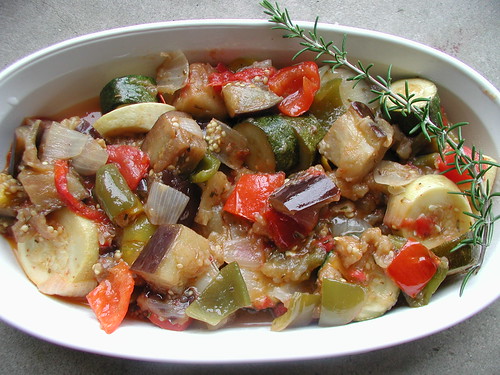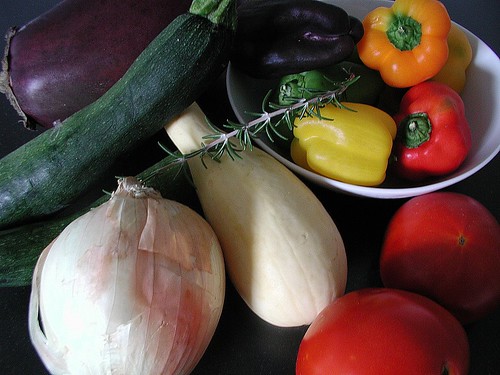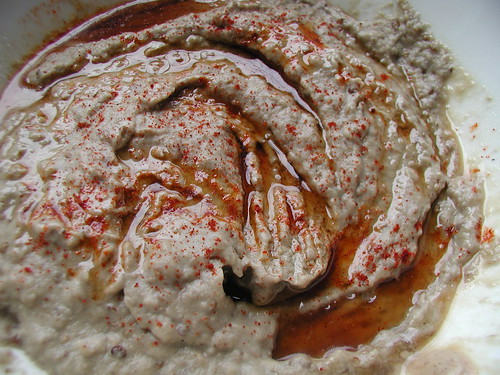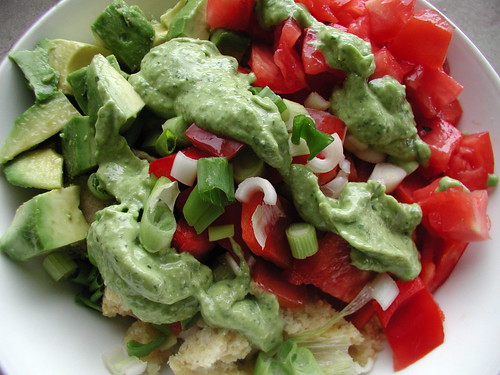So I've been sick.
Again. Both times I suspected food poisoning. So, between sipping ginger ale and reading mysteries, I decided this would be a good time to challenge my beliefs a little. I'm a big advocate of buying local food as much as possible. Partly, I like the routine of walking to the farmers market every Saturday and returning with a week's worth of produce. I like being in the swirl of the community. I like handing my money directly to the person who plucked the food off the tree or out of the earth. And I like knowing where and how my food was grown.
I've always said, part of the advantage of eating locally is that it's so easy to ask questions. I can ask the nice man who sells me oranges what sort of fertilizer he uses or what his policy on pesticides is. If I want to know the same thing about the orange I got via Sunkist, who do I ask?
Raw garlic was the only connection I could find between the two times I was sick. So I looked up the number of my garlic farmer and gave her a call. The call went right to her home phone number. And we chatted for a bit. No one else had called her about food poisoning in the past few months. Matter of fact, she hasn't had a complaint in the thirty years she's been growing garlic. And what reassured me most of all, she told me about her dinner last night, served to her entire family, that included several bulbs of that same garlic.
So where does that leave me? There's really nothing you can do about food poisoning beyond prevention. There's no pill or medicine to make you feel better, and most people will recover fine without ever visiting a doctor.
- You can report food poisoning to the health department. There's an "easy" form from Michigan State University. "Easy" because they want you to report what you ate the four days before you were sick, where you ate it, and where all the ingredients came from. I cook just about everything I eat myself, so that part was easy. But by the time I felt well enough to fill out this form, they were asking me to think back to breakfast five days before. That's pretty hard to do. And the canned beans I ate, were they the can I bought at the local store or the can I bought at Albertsons? And which brand were they?
- You can be very, very careful cooking and cleaning up after the most easily contaminated foods. According to the Center for Disease Control, these are: raw meat and poultry, raw eggs, unpasteurized milk, raw shellfish, and sprouts. Foods that mingle lots of raw ingredients together from different sources are particularly at risk. These include ground meat, bulk raw milk, and bulk raw eggs. I don't really eat any of these. I have the occasional sprout when I'm on vacation eating the ubiquitous "vegetarian sandwich", but that's about it.
- You can store your food properly. Don't store your meat with your veggies. Prepared food shouldn't be out of the fridge for more than four hours. This might be where I fell down. Where do y'all keep your garlic? I usually put it in my "root cellar" next to the potatoes. My mom always refrigerates it, but she puts tomatoes in the fridge, too.
- I don't have to tell you to wash your hands, right? My high school Trig teacher told us we should wash our hands for the amount of time it takes to sing "Happy Birthday". Don't ask me why my math teacher was giving us hygiene advice. Every time I turn on the tap this song floats into my head now. Be sure to wash up after handling messes from babies and other animals, too.





